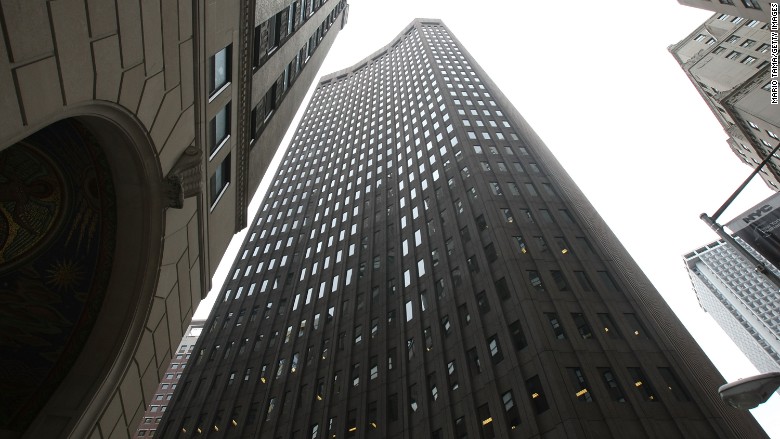-
Tips for becoming a good boxer - November 6, 2020
-
7 expert tips for making your hens night a memorable one - November 6, 2020
-
5 reasons to host your Christmas party on a cruise boat - November 6, 2020
-
What to do when you’re charged with a crime - November 6, 2020
-
Should you get one or multiple dogs? Here’s all you need to know - November 3, 2020
-
A Guide: How to Build Your Very Own Magic Mirror - February 14, 2019
-
Our Top Inspirational Baseball Stars - November 24, 2018
-
Five Tech Tools That Will Help You Turn Your Blog into a Business - November 24, 2018
-
How to Indulge on Vacation without Expanding Your Waist - November 9, 2018
-
5 Strategies for Businesses to Appeal to Today’s Increasingly Mobile-Crazed Customers - November 9, 2018
Goldman Sachs Ordered To Pay $50 Million Penalty Over Fed Leak
The NYDFS settlement also requires Goldman to abstain, for three years, from accepting any new consulting work that requires the disclosure of certain types of confidential information.
Advertisement
The so-called revolving door between financial regulators and the private sector has finally swung around and bitten one of those private companies right where it hurts – their bottom line.
Bansal emailed his supervisor, Joseph Jiampietro, that the managers of the unnamed Goldman client should “keep their cool, not get defensive and not say too much unless the regulators have a blatant fact wrong”, according to the DFS consent order with the bank. In the settlement, Goldman admitted to a failure to properly supervise and train the former Fed employee once he was hired at the bank.
According to the NYDFS, Bansal began working at Goldman Sachs in July 2014, as associate in the financial institutions group of the investment banking division.
Goldman Sachs (NYSE:GS) has been ordered to pay a $50 million penalty.
Before joining Goldman, Bansal worked at the New York Fed for almost seven years as a bank examiner.
While Mr. Bansal was at Goldman, the department said, he wrongfully obtained confidential information-including about 35 documents, several of which constituted what the department called confidential supervisory information-from the former co-worker at the New York Fed.
The New York Fed originally asked Mr. Bansal to resign, the department alleged, because among other things he took his BlackBerry overseas without asking prior permission and falsified records to cover it up, and because he engaged in “unauthorized communications” with the Federal Reserve Board. While doing little to decrease the perception of Goldman as overly close with its regulators, the tapes were far more damaging to the New York Fed.
When Goldman Sachs’ management learned of the breach, they fired Bansal along with his boss and started an investigation.
When Goldman found out about the insider documents Bansal received, he was let go. The New York Fed said in a statement in November that it has “zero tolerance” for personnel who don’t safeguard confidential information.
“We are pleased that Goldman Sachs has made a decision to resolve this matter and work with us to institute reforms that help prevent similar problems from occurring in the future”, NYDFS Acting Superintendent Anthony Albanese said.
Advertisement
A spokesperson from New York Department of Financial Services states that this case reaffirms a critical need for controls and policies when hiring employees.





























